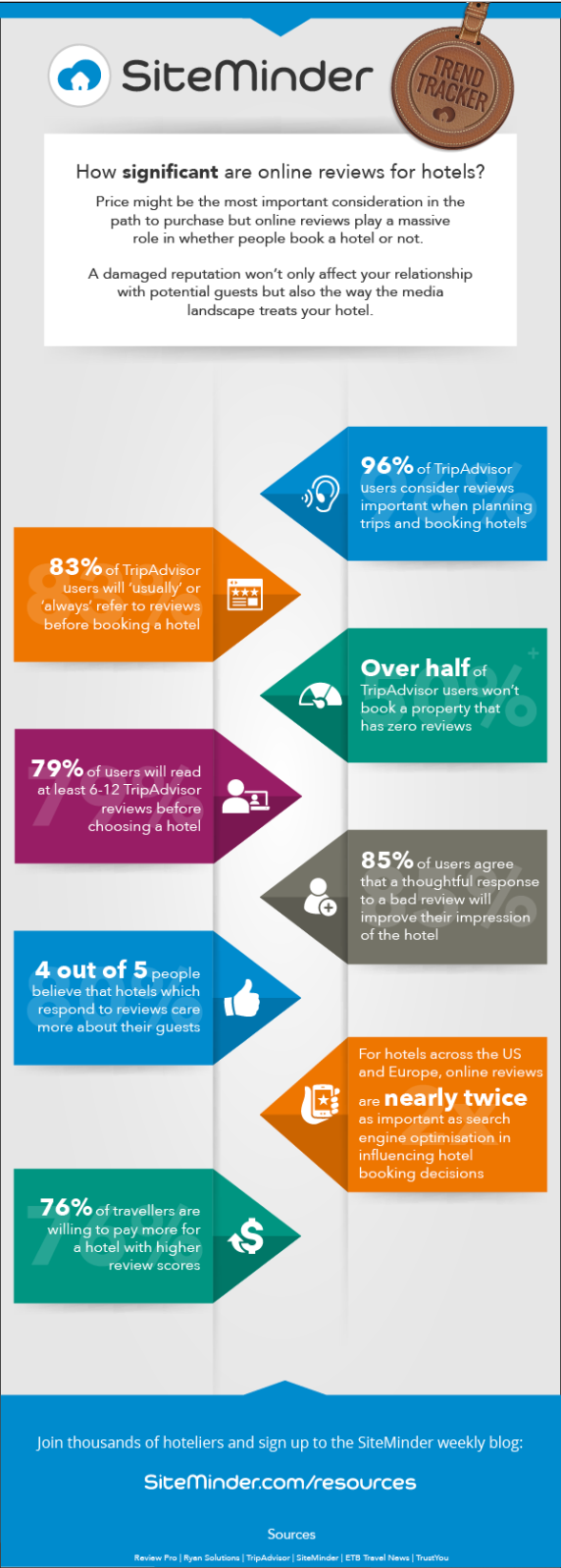This lesson provides an overview of:
- Role of reviews in consumer decision-making styles
- How to encourage guests to write reviews
- Understand the concept of online customer reviews, incl. power and risks
- Write an independent online review for a third-party product or service
User Generated Content, also known as Consumer Generated Advertising (CGA), is defined as any type of content that has been created and posted to social media by unpaid contributors. It can refer to pictures, videos, testimonials, tweets, reviews or blog posts, and is the act of users promoting a brand rather than the brand itself.
People trust customers more than they trust companies. They want real people telling them about their experiences with a product or service. In the online era, user-generated content is the best way to bring that authenticity to customers.
Online reviews are one of the most trusted types of user-generated content as people who have had either a very good or very poor experience have a desire to share their experience with others. Managed well, these reviews can boost the reputation of your hotel and drastically increase bookings.
Google Business, TripAdvisor as well as other OTA's such as Booking.com and Airbnb offer extensive review platforms. It can often be a complex and time-consuming process to manage and respond to reviews but it's important and can be very rewarding for your business. While it is a good idea to respond to positive reviews with thanks, it is vital that you respond to every negative review to show that you care.
A review acts like a public announcement about a business, and used well, can be your most effective method of marketing. Most travellers use online reviews to help them decide where to stay and what to do when travelling, so it's vital to manage your reviews.
Prospective buyers look at star ratings, the total number of reviews, and basic business info. After that, they start looking at individual reviews to learn what to expect from a business and whether or not they should use their services.
Bear in mind that you can receive reviews on places like TripAdvisor and Google regardless whether you have listed your business there and invited reviews or not; it happens outside of your control. For this reason it's a good idea to step in and manage the message as far as possible.
Positive reviews are a very strong form of word-of-mouth advertising, while negative reviews can have a detrimental affect on your business by turning prospective customers away. Most reviews are written by people who were highly satisfied or severely dissatisfied with your product or service; those who don't feel strongly usually won't take the effort to leave a review.
To increase the number of positive reviews, aim to encourage satisfied customers to leave a review.
The following infographic indicates how significant online reviews are for hotels and accommodation:

Credit: Siteminder
How to ask for a review
Ask in response to praise
When customers thank you or your staff or mention that they have had a good experience, this is a good opportunity to thank them in return and then ask if they would leave a review online.Ask during/after checking out
Before a customer leaves, use the opportunity to ask them if everything was in order and if they were happy with their experience. This can be asked by staff during checkout, via a paper questionnaire or via email.Summary
- Online reviews are one of the most trusted types of user-generated content as people who have had either a very good or very poor experience have a desire to share their experience with others.
- Managed well, these reviews can boost the reputation of your hotel and drastically increase bookings.
- Google Business, TripAdvisor as well as other OTA's such as Booking.com and airbnb offer extensive review platforms.